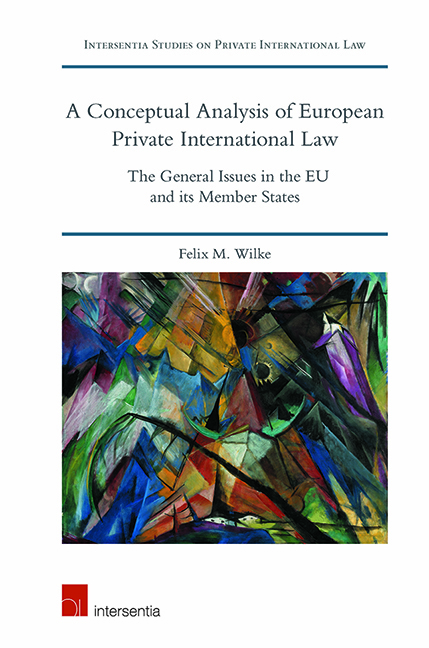 A Conceptual Analysis of European Private International Law
A Conceptual Analysis of European Private International Law Summary
Not long ago, genuine European private international law consisted, beyond the Brussels Convention, of a few isolated choice-of-law provisions in specific EU instruments, in particular consumer directives. Since then, we have witnessed an astonishing growth in the number of instruments of European provenance, many of which directed at establishing the applicable law. EU private international law has moved from the margins to the centre. By now, it is a venerable field of its own.
While we do have European private international law, what we do not have is a comprehensive and systematically uniform approach to private international law on a European level. Different Regulations on private international law stand in sometimes unclear relation to each other. Moreover, general issues of private international law – doctrinal tools like characterisation, renvoi, and the public policy exception – are not regulated on a level that would transcend these individual instruments. Some tools, like the public policy exception, can be found in each of the Regulations. Other tools, like characterisation, exist in a form that is doctrinally different from that in domestic law, oft en as provisions concerning the scope of an instrument and the scope of the applicable law. And some tools, like the incidental question, find no regulation at all.
This lack of uniformity is the focus of this most welcome book. Felix M. Wilke, a young scholar from the University of Bayreuth in Germany, has focused on this topic before: he was prominently involved in a project established at a conference in 2012, and in a corresponding collection of essays published in 2013, which aimed at establishing the potential for a general part of European private international law. The project set out to produce a legislative instrument, cleverly named a “Rome 0 Regulation“, that could serve as a legislative general part that would both supplement and connect the existing private international law regulations. Both book and project were in German and brought together scholars from German-speaking universities. Now, Wilke addresses this question in a comprehensive fashion in English.
And he deserves our gratitude for this. This is a thoroughly researched work that is both comparative-empirical and prescriptive in nature, a study that both surveys existing law and makes proposals on the basis of its findings.
- Type
- Chapter
- Information
- A Conceptual Analysis of European Private International LawThe General Issues in the EU and its Member States, pp. vii - xPublisher: IntersentiaPrint publication year: 2019
